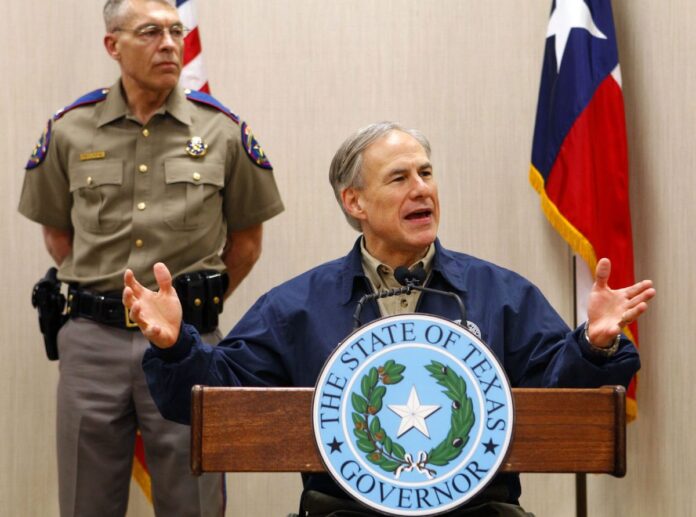
Chuck Lindell Austin American-Statesman (TNS)
AUSTIN, Texas — A Democratic effort to overturn Texas Gov. Greg Abbott’s veto of funding for the legislative branch has drawn support from two former House speakers — Republican Joe Straus and Democrat Pete Laney — and onetime GOP Lt. Gov. Bill Ratliff.
The three former top officials urged the Texas Supreme Court to strike down Abbott’s veto as a “matter of executive overreach” that violates the Texas Constitution’s separation of powers doctrine.
“The Governor has used his veto power to render inoperable a co-equal branch of government,” Straus, Laney and Ratliff told the all-Republican Supreme Court in a brief filed Monday.
“It is the obligation of the Judiciary to protect the balance of power and defend the constitutional order that has governed in Texas for almost two centuries,” they added.
In late June, more than five dozen Democrats in the Texas House asked the Supreme Court to overturn the veto, saying it would set a dangerous precedent for future interference in legislative powers.
However, in a separate brief defending the governor’s action, Texas Attorney General Ken Paxton argued that Abbott’s line-item veto — cutting all money allocated for the Legislature and associated agencies from the two-year state budget that begins Sept. 1 — was legal and justified.
“Under the Texas Constitution, the Governor has the exclusive power to disapprove any bill, and that power may not be circumscribed in the amorphous manner that (challengers) propose,” Paxton said.
He also rejected claims that the veto violated the separation of powers, instead characterizing the dispute as a classic example of Abbott applying the checks and balances between branches of government.
What would violate the separation of powers, Paxton added, is the Supreme Court overruling a legal veto by the leader of the executive branch — improperly placing the judiciary in judgment of the motives behind a veto.
“The courts have no role to play in such a textbook political-branch dispute,” he wrote.
Texas lawmakers to begin special session this week
Abbott cut the Legislature’s money in retaliation for a walkout by House Democrats in the closing hours of the regular session, when they broke quorum to block a vote on a sweeping Republican elections bill.
Paxton told the court that lawmakers, who will begin a special session on Thursday to take up a new elections bill and other issues, will be given a chance to restore the funding by passing a supplemental budget, making the dispute a short-lived one.
Another legal brief in support of the Democratic challenge was filed by law professors, all 13 Democrats in the Texas Senate and five Republicans from the Texas House — current Rep. Lyle Larson, R-San Antonio, and former members Jimmie Don Aycock, Sarah Davis, Bennett Ratliff and Todd Smith.
They also argued that Abbott’s veto ran afoul of the separation of powers.
“One branch of government cannot aggrandize its own power by eliminating the ability of another branch of government to operate,” they told the court.
The League of Women Voters of Texas also weighed in, telling the Supreme Court that Abbott’s veto improperly imperiled the Legislature’s ability to meet its constitutionally obligated duty to draw new political districts based on the 2020 Census.
Redistricting will take place in another special session expected to be called this fall because of delays from the U.S. Census Bureau, which said it will release the in-depth data needed to redraw political boundaries by mid-August.
The Supreme Court has not indicated when it would issue a ruling on the veto challenge. All eight members of the court are Republicans. There also is one vacancy after Republican Eva Guzman resigned recently to run for state attorney general.



